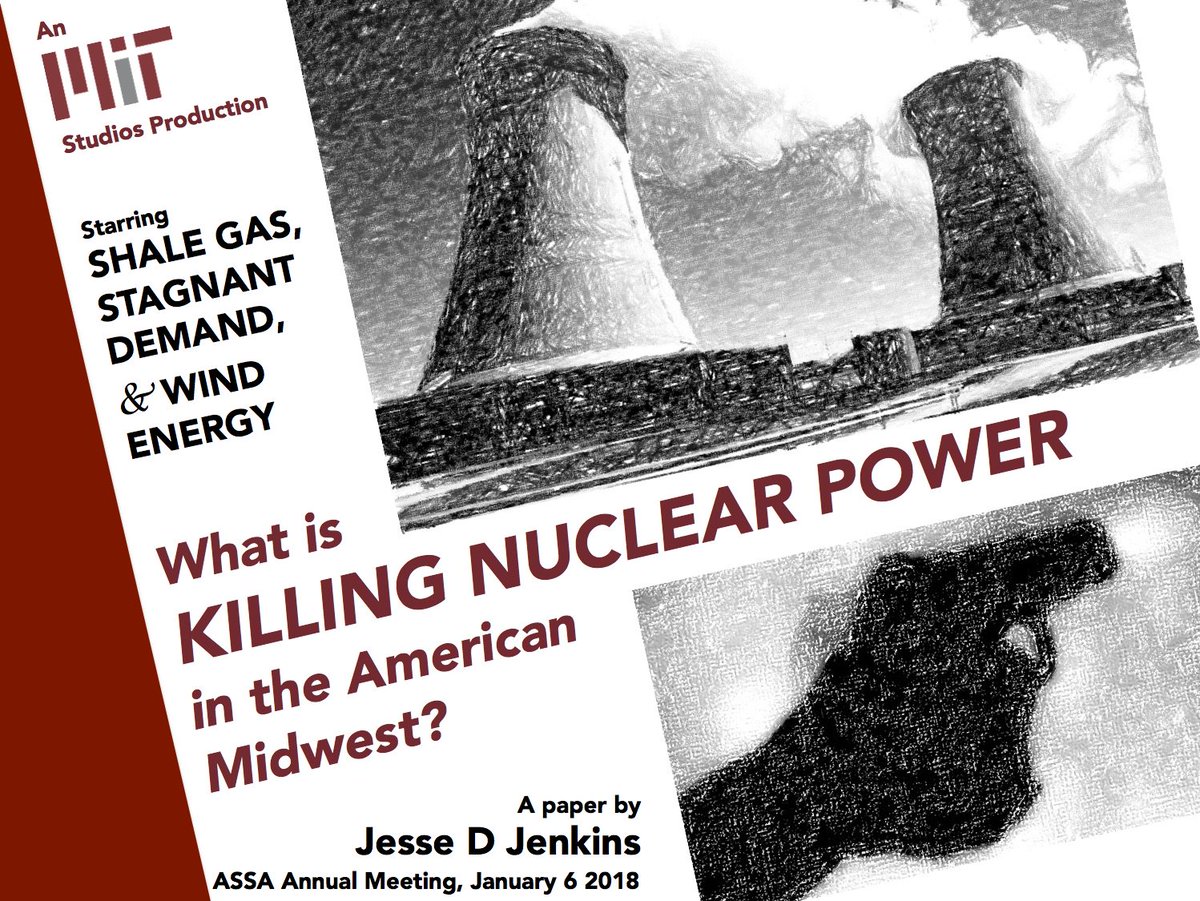
Macro-energy systems engineering, optimization, and policy. Prof. @EPrinceton (MAE) & @AndlingerCenter. Co-host SHIFT KEY pod. Find me at BlueSky now.
How to get URL link on X (Twitter) App


 Using a social cost of carbon -- the estimate of societal damage caused by one ton of CO2 -- of €30/ton, the OECD finds that almost 90% of total global CO2 emissions are priced at a level below the damages they cause. About 55% of global emissions are not priced at all.
Using a social cost of carbon -- the estimate of societal damage caused by one ton of CO2 -- of €30/ton, the OECD finds that almost 90% of total global CO2 emissions are priced at a level below the damages they cause. About 55% of global emissions are not priced at all. 

 What the law does *not* require:
What the law does *not* require: 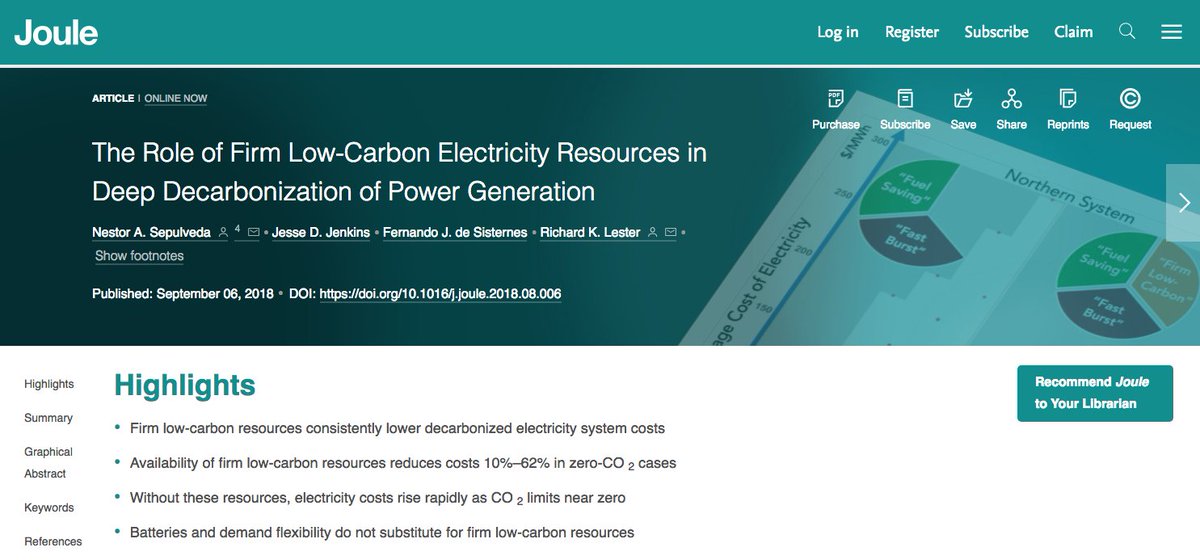

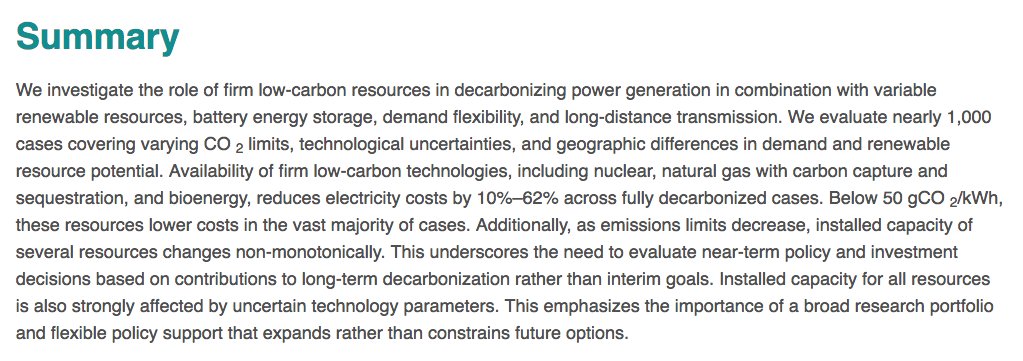 In the paper, @nsepulvedam, @FdeSisternes, Prof. Richard Lester and I use detailed power system modeling to identify strategies that lower the costs and increase the odds of reaching a zero-carbon electricity grid. Check out MIT News coverage of the paper: technologyreview.com/s/611987/how-c…
In the paper, @nsepulvedam, @FdeSisternes, Prof. Richard Lester and I use detailed power system modeling to identify strategies that lower the costs and increase the odds of reaching a zero-carbon electricity grid. Check out MIT News coverage of the paper: technologyreview.com/s/611987/how-c…
Michael's first (of two controversial) posts on renewables driving up electricity costs forbes.com/sites/michaels… contains several grains of truth (eg the declining value of wind/solar as they scale) but it doesn't connect the right dots either.
External Tweet loading...
If nothing shows, it may have been deleted
by @jacob_mays view original on Twitter
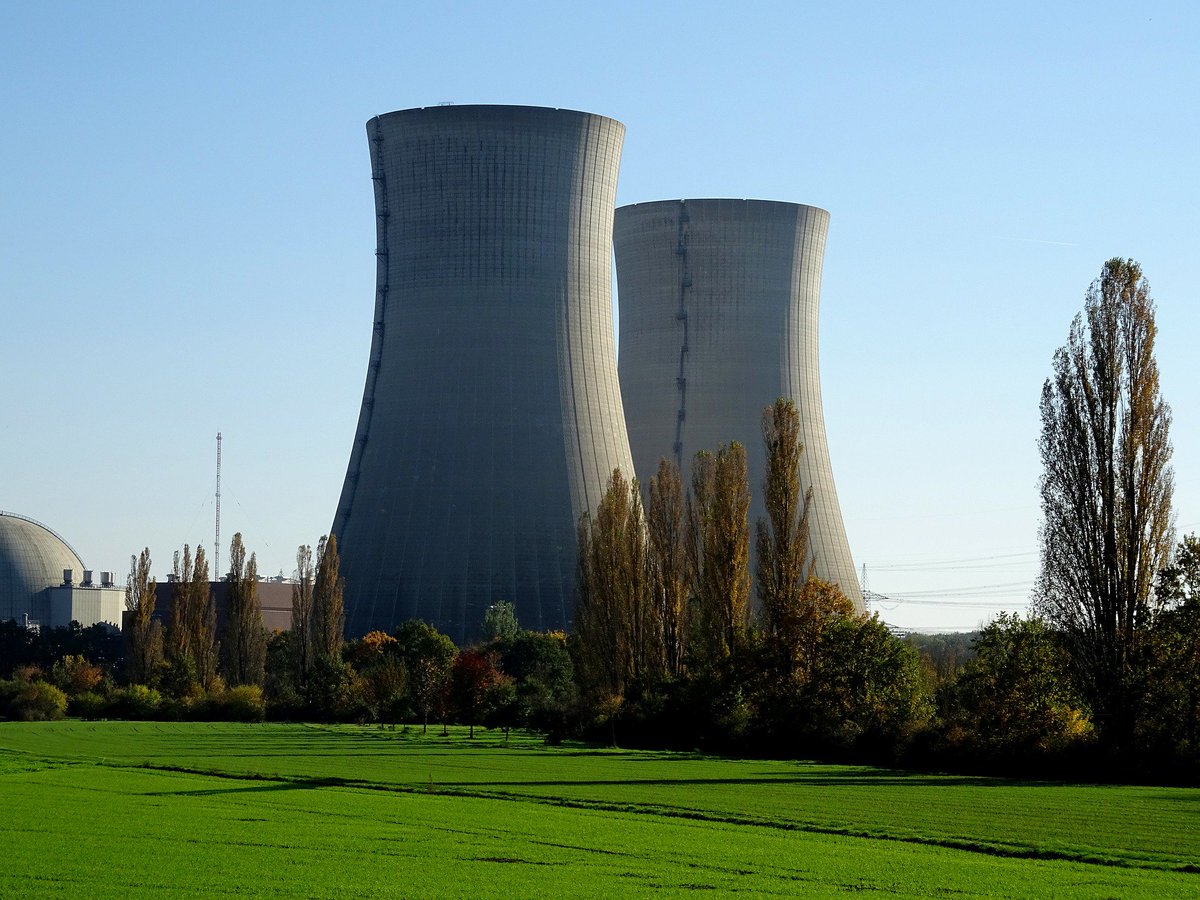
 In reality, while nuclear plants traditionally provide steady output 24-7, reactors are technically capable of much greater flexibility and can dynamically adjust their power output to respond to changing electricity prices and second-to-second frequency regulation needs. 2/
In reality, while nuclear plants traditionally provide steady output 24-7, reactors are technically capable of much greater flexibility and can dynamically adjust their power output to respond to changing electricity prices and second-to-second frequency regulation needs. 2/

2. To ensure that this new clean energy replaces fossil fuels and contributes to #climate mitigation goals, NJ's new laws also make payments to ensure the continued operation of 3 South Jersey nuclear reactors that currently supply 31% of the state's electricity consumption.
External Tweet loading...
If nothing shows, it may have been deleted
by @RedsforNamesake view original on Twitter
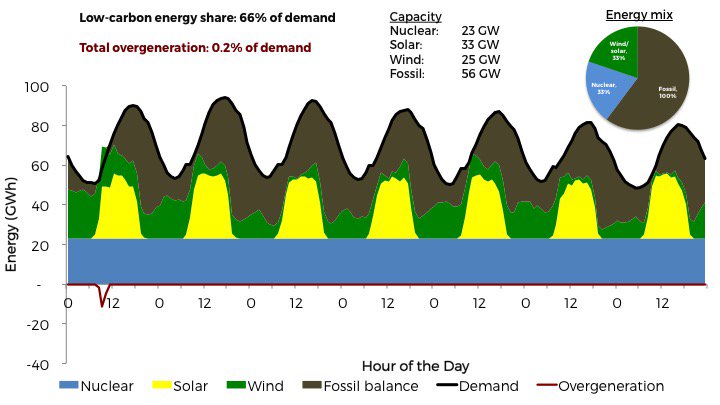
In this new "discussion paper," energy journalist @PPchef takes great pains to demonstrate that nuclear power is too inflexible to pair well with wind & solar in a "decarbonized energy system" & thus must be discarded "to make room" for more #wind & #solar publications.iass-potsdam.de/pubman/item/es…
External Tweet loading...
If nothing shows, it may have been deleted
by @PPchef view original on Twitter
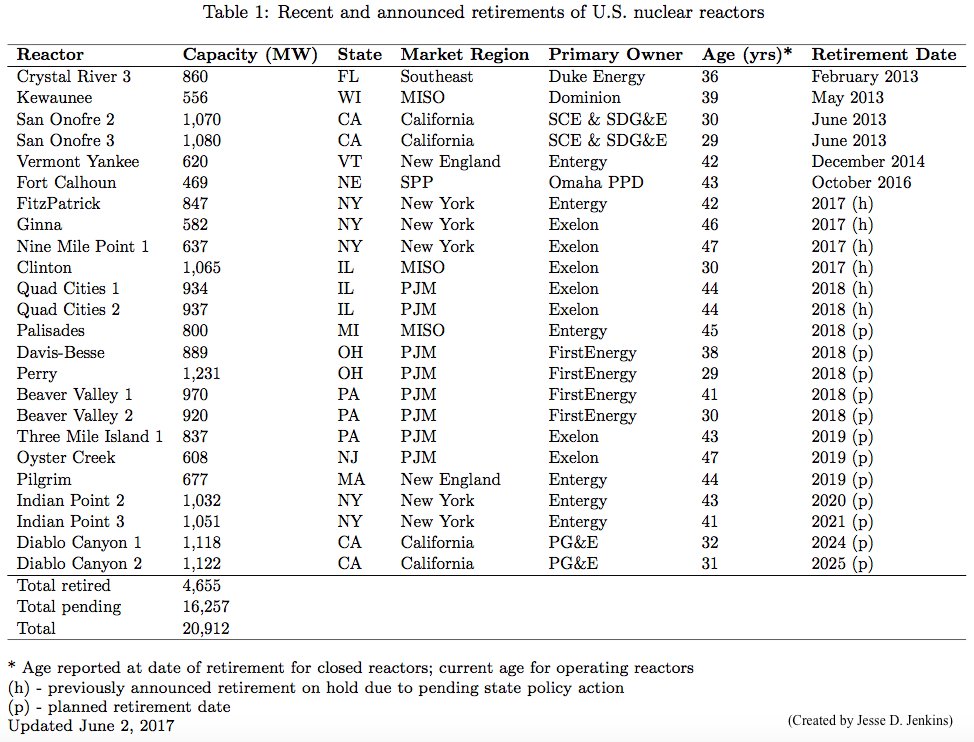
 In a new @MIT CEEPR paper -- 1 part #energy #economics & 1 part film noir murder mystery! -- I provide the 1st empirical estimates of what's driving down #electricity market prices & killing profitability of 19 #nuclear power plants across @pjminterconnect ceepr.mit.edu/publications/w…
In a new @MIT CEEPR paper -- 1 part #energy #economics & 1 part film noir murder mystery! -- I provide the 1st empirical estimates of what's driving down #electricity market prices & killing profitability of 19 #nuclear power plants across @pjminterconnect ceepr.mit.edu/publications/w… 